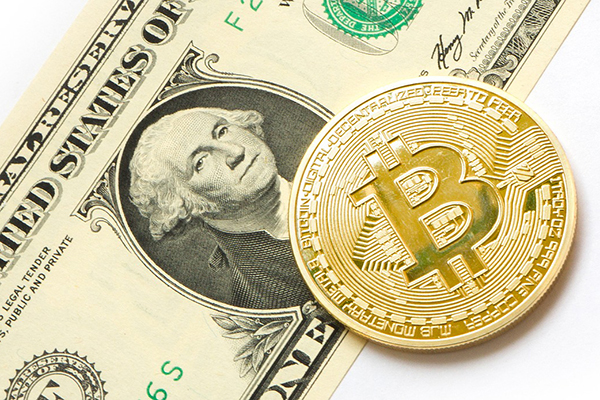Now we have What Are The Uses Of Blockchain? In Addition To The Cryptocurrencies (Part II). In the previous post we talked about:
- Cryptocurrencies
- Finance and economy
- Fintech and banking
- Big Data
- Notaries
- Digital signature and identity verification
7. Logistics and Transport

The field of trade involves multiple agents and intermediaries: manufacturers, wholesalers, distributors, suppliers, courier companies, consumers …
The transport of goods between all these actors generates an enormous amount of documentation, mostly on paper. T
The application of digital technologies to this sector would reduce this paperwork, speed up the transport of goods and considerably reduce costs.
If this technology were the blockchain, the possibilities would multiply.
Applications based on blockchain in logistics could automate all document management. Eliminating many of the intermediaries and offering information in a transparent, clear and instant way.
A blockchain logistics platform could be a collaborative player in the industry and could put shippers in direct contact with carriers.
What Are The Uses Of Blockchain? In Addition To The Cryptocurrencies (Part II)
8. Internet of Things
The Internet of Things (IoT) is a concept that refers to a digital interconnection of everyday objects with the Internet.
Interconnectivity is much more present than we think and is already present in domotics, smartwatches or activity wristbands.
Many experts claim that the blockchain is the perfect friend for IoT as it would considerably improve the security of current cloud services and allow protection of the identity of users (source).
9. Food and Traceability

But perhaps the usefulness of blockchain in the logistics sector and the transport with the most potential is traceability.
The inalterability of the blockchain gives transparency, security and confidence to the data provided by companies in terms of traceability.
Therefore, many food companies have been interested in blockchain programs that ensure the origin of their food, giving more confidence to consumers.
These solutions would be, for example, an BIDI code that would show the origin and distribution of products in a matter of seconds.
10. Insurance Companies
The potential of blockchain in the insurance sector also lies in the emergence of smart contracts.
In these cases, an smart contract could automatically execute an insurance contract clause, without the need for experts or legal problems.
In addition, due to the self-executing capacity of smart contracts, it makes it possible to settle insurance contracts more transparently, fairly and without the need to reveal personal data or confidential information.
The potential that the insurance sector finds in blockchain is focused on microinsurance, an area that they believe they can promote and market thanks to the tools offered by the block chain.
11. Lawyers, Law and Legal sector

Smart contracts make contracts inalterable and irreversible, secure, more transparent and confidential.
Therefore, many experts believe that one of the sectors where the blockchain can have more impact is the legal sector.
In addition, Smart contracts would replace traditional contracts, creating a more transparent environment for the user and more efficient for law firms and courts.
Does Blockchain mean the end of lawyers?
Of course not. The blockchain does not exclude legal experts, as it will be up to them to draw up smart contracts.
The technology industry will therefore demand other skills from legal professionals, who will move from drafting traditional legal texts to programming smart contracts.
We all know that the legal sector is one of the areas most reluctant to innovate. So the integration of blockchain into the legal profession may still be uncertain.
However, it is also true that some legal companies are beginning to invest in the blockchain. For example, at Cornell Tech, they insist that smart contracts will come into our daily lives and are developing smart contracts for the legal sector.
What Are The Uses Of Blockchain? In Addition To The Cryptocurrencies (Part II)
12. Human Resources

The transparency and security transferred by the blockchain could lead to a transformation of personnel selection processes.
A platform integrated in blockchain would guarantee the veracity of the data of the candidates. For example, it would confirm the identity and authenticity of titles, certificates and references.
Similarly, a combination of blockchain technology with Big Data tools would allow better analysis of candidates to identify the one that best fits the job.
In addition, the potential of smart contracts could be applied to other HR tasks, such as contract modification or payroll automation.
13. GDPR
Although, the security, encryption and inalterability of the blockchain seems perfect for managing databases with personal data, these same characteristics may be contrary to some of the requirements of the new General Data Protection Regulations.
That is why many expert voices are declaring themselves against the application of blockchain technology to data protection. The fundamental reasons are:
- Impossibility of the right of cancellation. The blockchain can not be altered. So it is impossible for a user to request to be deleted from a database, right which is contained in the RGPD.
- Retention of personal data. The new Regulation requires users’ personal data to be kept only for as long as is necessary to carry out the relevant activity. The impossibility of modifying the blockchain would make it necessary to keep such information indefinitely, which is also in contradiction with the RGPD.
- Updating of data. Personal data must be accurate and up to date. In addition the principle of inalterability of the blockchain would make it difficult to modify this information.
However, the potential offered by smart contracts can solve these problems. Serving the blockchain as a tool to manage a database and not the database itself.
Did you like What Are The Uses Of Blockchain? In Addition To The Cryptocurrencies (Part II)? Continue reading at “What Are The Uses Of Blockchain? In Addition To The Cryptocurrencies (Part III)”



